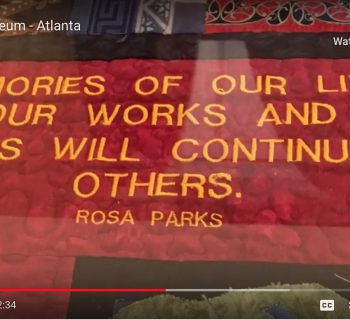Matt Maras
If young people in the United States had a dollar for every time the term “millennial” was used derogatorily, or they were associated with avocado toast, the money issues which plague a majority of 20-somethings would be a moot point.
Unfortunately, the stereotype of being a “broke kid” even after graduation could never be more accurate today where everything seems to be more expensive.
Many young people and college students are attempting to survive life as best they can despite overwhelming expenses and expectations. The push for a college degree, a higher cost of living than generations past, and competitive job market have littered a treacherous road for success in a generation moving out and facing the perils of adult responsibilities for the first time.
In a transitional period to financial independence as a young person, monitoring income and spending habits are paramount in order to stay afloat. Millennials face a 20 percent lower average income rate than previous generations (adjusted for inflation).
A tougher job-climate coupled with student loan debt, which has increased 213 percent respectively since 1980, according to “Business Insider,” can be overwhelming, although not impossible to manage with money savvy techniques.
Experts agree that ingenuity and self-control are vital skills used to save money. Packing lunch, cutting back on purchasing unnecessary food treats or expensive coffees, and finding roommates to drastically decrease unrealistic rent cost are very powerful methods to save money according to “The Simple Dollar.”
Planning a successful budget as a young person is rooted in simplicity. Being conscious of spending via mobile banking apps is a helpful tool in tracking where money can seemingly disappear. Identifying personal income and necessary spending serve as cornerstones for the task of building a budget.
CCBC Nursing Student, Bailey Neudeck, stated, “I am grateful to live with my mom in order to save money while in school.”
She explained that it would be nearly impossible for her to live on her own, work, be social, and attend school otherwise.
“Although I am currently employed in the health field as I work towards my degree, I must work limited hours in order to save time for studying, socializing, and sleeping.”
Neudeck’s approach to saving money is to work more when she has the time so she does not have to cut back on spending as much.
Taking a more laidback approach, John Helinski, a 21 year old with both trade and college experience has a respectable, realistic outlook on finances.
“I took a few classes for a semester, although struggled to figure out how to pay for school, rent and food,’ he said. “Then I moved back in with my mom in order to free up cash for school.”
Helinski also began driving for the ride share service Lyft as a second part-time job in order to increase his income.
“Driving for Lyft in my free time allows me to make extra money so I am still able to have fun,” he said. “I am trying to enjoy life now without being overly stressed. If I finish up school and settle down later than my peers I am ok with that.”
Although everyone has their own methods of saving money, being conscious of where one’s money goes while taking charge of personal finances is a very important step to sound financial living.
*Articles reflect the views of the author and or those quoted and do not necessarily represent the views of CCBC or the CCBC Connection.















This post is a great example of what college students must go through and stress over. The statistic of debt increase of 213 percent is completely mind numbing. The expectation of students to immediately understand their path at a young age of 18 and to then to immediately fall into debt is ridiculous; especially when most of those students don’t understand how to budget and use their money correctly to not fall into deep debt. This further increases stress in a young persons life and could deter them completely from a path of education.
I really appreciate the addition that you included with interviewing students that had already gone through this stress and figured out some sort of system that works for them. I too currently live with my parents and helps me completely feel stress free when it comes to housing and food. Helinski’s words about not being overly stressed and not worry about settling down later in life is also something that students should look at more. Most students have a burden of parents and friends telling them to get things done quick and at a very young age you may not even have an idea of what you want to become, there is many different paths that people don’t discover because they feel so rushed to get through things. There are many older students at CCBC that are content with the way their life is now and that show the younger students that you don’t need to zoom through everything; there is still alot of life left to live so you should live it now.
I resonate with this article even more than the other ones in particular because of who it is targeting. I feel like they are really talking to me because these are the exact concerns I have when dealing with my life right now. As a 22yr old who likes many things and wanting to do many things but still lives with his parents and has to work, pays bills, and etc it is difficult to save your money. You have to come up with tricks and plan ahead to just keep yourself afloat and I really get it. Organization is key for young adults to actually move forward in their goals and for saving. No need to spend money on the newest things even if you do want to; just wait until it hits clearance then go buy it.
This is a very well written article. I can completely relate to the problems presented in this article, and it is ironic the way Millenials are lambasted for things such as avocado toast, when it is very difficult to find jobs! I like interviews that take place with CCBC students, and it really connects the article to the school. I hope that through our education, we all find a way to get out of our financial holes!
In a world where they think we’re entitled, Mr. Maras’ article explains briefly the stigma behind the “broke kid” for millenials and young untraditional college students. The writer describes issues that exist within the transitional period of young adulthood such as lower income, student debt and cost of living. The essential take away from this article is that the new generation was born into a tougher job-climate. The jobs were replaced by technology or replaced overseas even though minimum wage increased the cost of living exceeds. Coupled with those new expectations are capitalism which create a competitive environment. To add, I also benefit from being a untraditonal college student, I work part time and live with my mother and pay 100 dollar rent occasionally. Some commentators from article say new services such as Uber and Lyft aid in being stress free, saving money and have better hours. I too partake in such advice and I would advice community college unless you have a full scholarship to a four year, definitely cuts down the debt. Maras concludes with tips and budgets that include saving, packing a lunch, rooming with friends and tracking expenses with mobile banking.
This article is accurately describes the financial situation of many college students. Between school, food, and bills, many students simply lack the time and money to partake expensive hobbies. Many students either work full-time to pay their bills or work several part-time jobs to cover their expenses. Compared to previous generations of college students, millennials are also able to find financially savvy ways of getting ahead. Some don’t bother owning a car and either take public transportation or Uber/Lyft to get around. Others make money off their technological skills building websites or creating software. Opportunities to make some side cash are available to college students that wasn’t just a few decades ago. In an age when everyone carries a phone, why not make some money off it?
I like this article a lot and it is well written. I do also agree with this article one-hundred percent because it relates to me. All I do is work and take classes so I don’t have time to do anything fun. I am thankful that I live with my parents. I feel bad for colleges students because in my opinion learning should be free. If learning was free millennial’s wouldn’t have to worry about money , a job, having to worry about life. Then we can focus more on our classes and learn more so we can do better in our careers.
I can relate to this article in many ways. I love how it was pointed out that we are “broke” after graduation. I feel like this is true because we have to pay so much into getting a degree that when we get out most jobs won’t hire us without experience. Students have a tough time with going to school and paying their bills. It states that driving for lyft or uber is a good way to make money, but sometimes people do not have the time or energy to do that because they are studying for their classes.
I think the first thing a college student looks at is “Freedom” from being away from their parents. They tend to forget that reality kicks in and now they are officially adults. Its hard to focus on school work as a college kid when you have to worry about if the rent will be paid and what to eat for the next week when jobs are not paying enough to cover living independently. The side jobs are always good but then it takes away from social life. Balance is so needed for college kids and sacrifice. That little taste of freedom comes with headaches but sometimes it is well worth it.
All of this is so true and has been true for some time now. While I am not a millennial my financial struggles are the same as described in this article. In some cases it’s worse, I am a single parent in college and still paying off debt from a previous degree I earned. The struggle to balance finances is very difficult with the price of everything going up except for wages, something has got to change.
Great article Matt. I had an interesting experience buying a car just last week. The person selling the car asked if this was my first “selling my soul” experience. My car was quite a bit of money for me but I didn’t think I was selling my soul all. I bought a car that I can afford. Maybe one day when I buy a house, well that I might feel like I am selling my soul to the bank. As long as you seriously think about big money decisions before pursuing them, you will be in good shape.
A budget, as Matt Maras points out, is certainly the most important strategy to follow as a college student. In days gone past, it was far simpler to stick to a budget, as you could keep from spending by staying home, or taking only the amount of money you wanted to spend. However, in today’s world with ubiquitous online retail sticking to a budget is harder to do as money can be sent with a click of the finger. On top of the ease of spending, tracking money has become more difficult as well.
Matt,
This was a very relatable article and I am sure the majority of college students can agree. Today’s education and job market realm was nothing compared to how it used to be. I have heard professors and experienced adults discuss how college, tuition, and jobs were much different back when they started. Now, college/universities are pieces of a business. College students spend thousands to receive an education, that after graduating, they are to pay back. How does one do this? By finding a high salary job, sometimes one that we are not even interested in but it pays well. We use that money to end up paying off student debt and other loans from education. However, the job market itself is ridiculously competitive now too. Many require individuals to have 10+ years of experience with bachelors, that too, for an entry-level position. The requirements just do not make sense, and companies end up turning away potential candidates due to ridiculously high expectations. Where does one get that 10 years or so of experience when companies are just not hiring or going through with the process? It’s a continuous vicious cycle, unfortunately. Moreover, we all aim to buy a house, have a family, travel, etc.. But that to costs and arm and a leg, and individuals are left in debt or just struggling financially. Compared to the rest of the world, the United States is not the best when it comes to the quality of education, student resources after graduation, and the job market.
Creating a budget and learning to save money is more important than finding ways to earn the money. There is a trap built into advertisements and social media marketing to show the glamorous side of life, taking away from what is actually important like saving money.
I loved this article because it shows that as millennials we are not entitled that we are born in a tougher era when it comes to the cost of living as well as job , and competition for jobs . I did have some friends who managed to get well paying jobs but for me I always struggled every job that paid decent without a degree it seemed like either you had to know someone to get in or fit a certain mold or they wanted experience. which was a catch 22 how am I going to get experience if no one will hire me without it. Sadly we do have to resort to having room mates to cut the cost which is not a issue but it is hard to find good room mates. Like I told my friends who were younger then me if you can live at home live at home save money and just finish school and save money. I moved out and even with a room mate and making 3 dollars over min wage I was struggling to pay my bills and go to school full time and there was basically no social life.